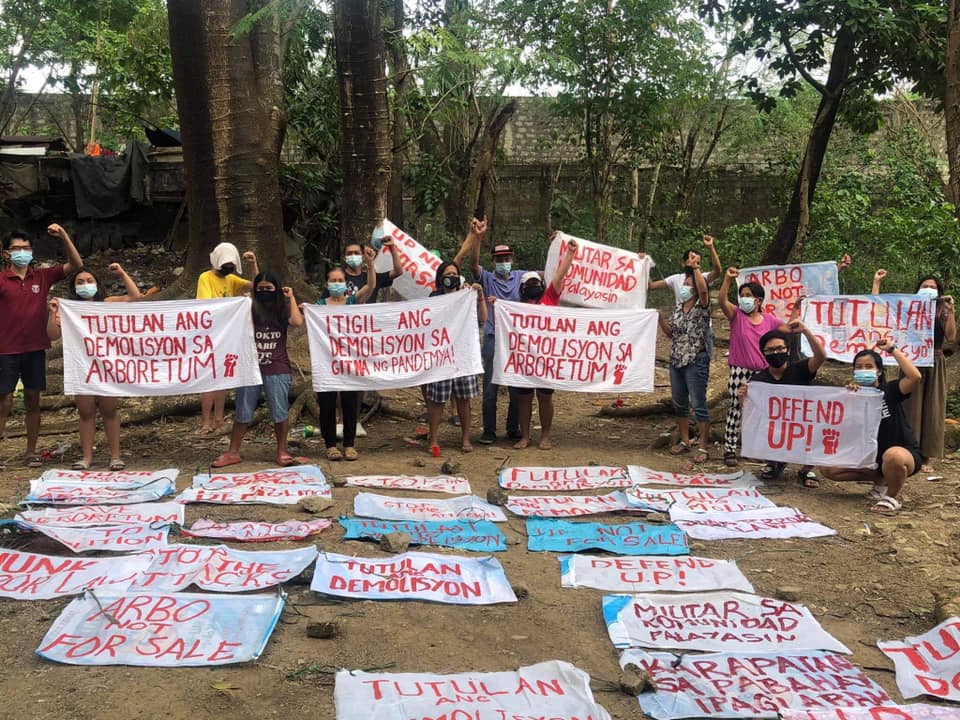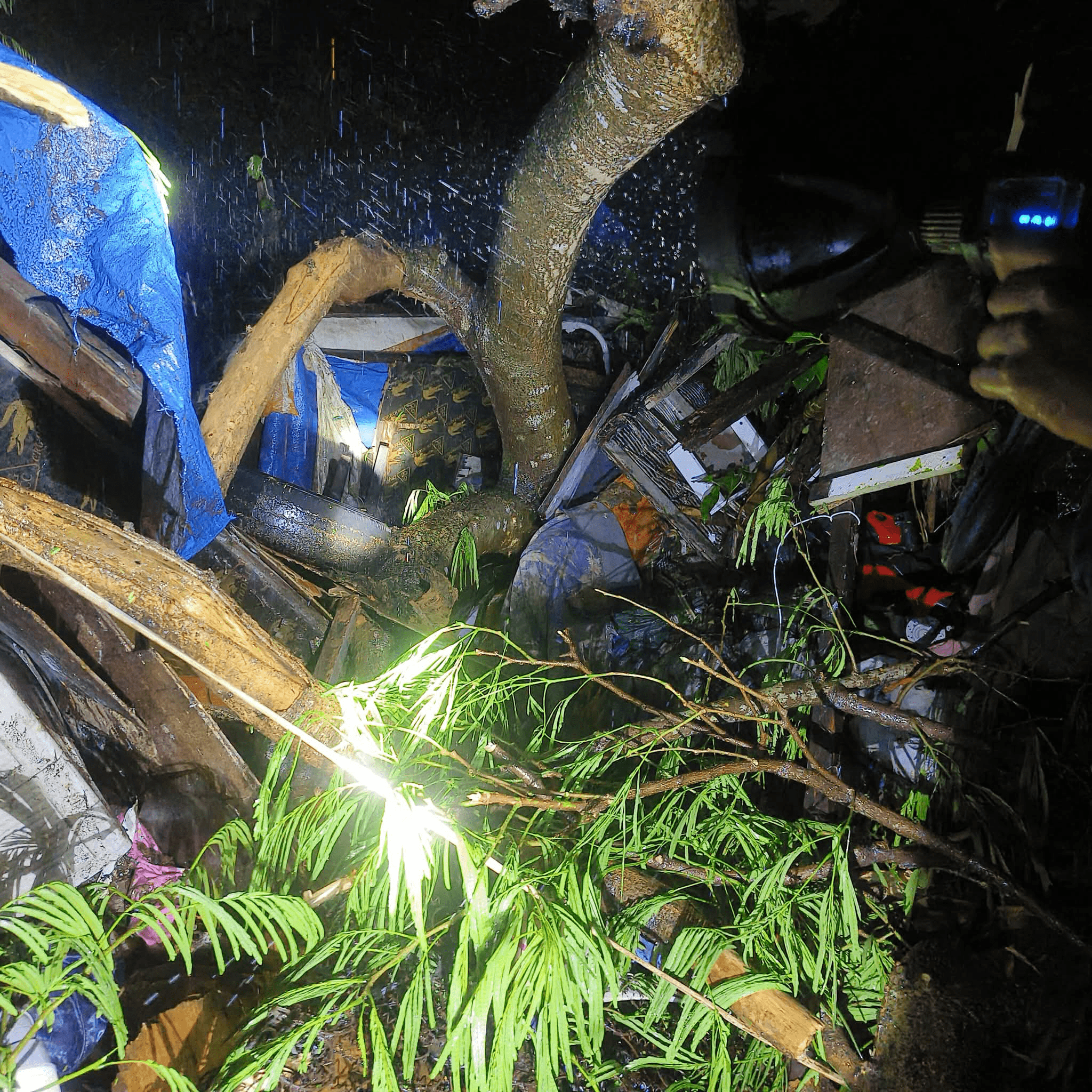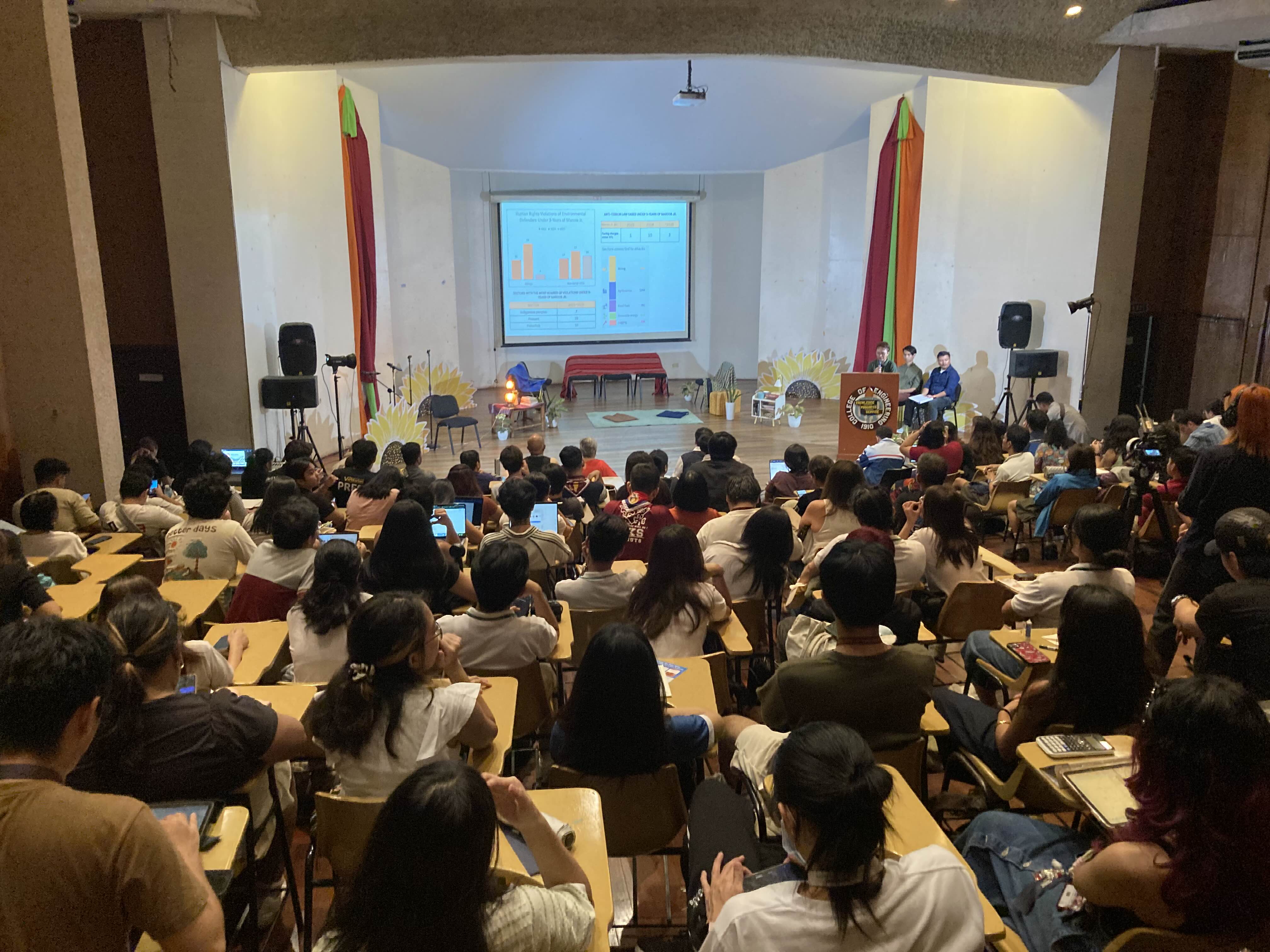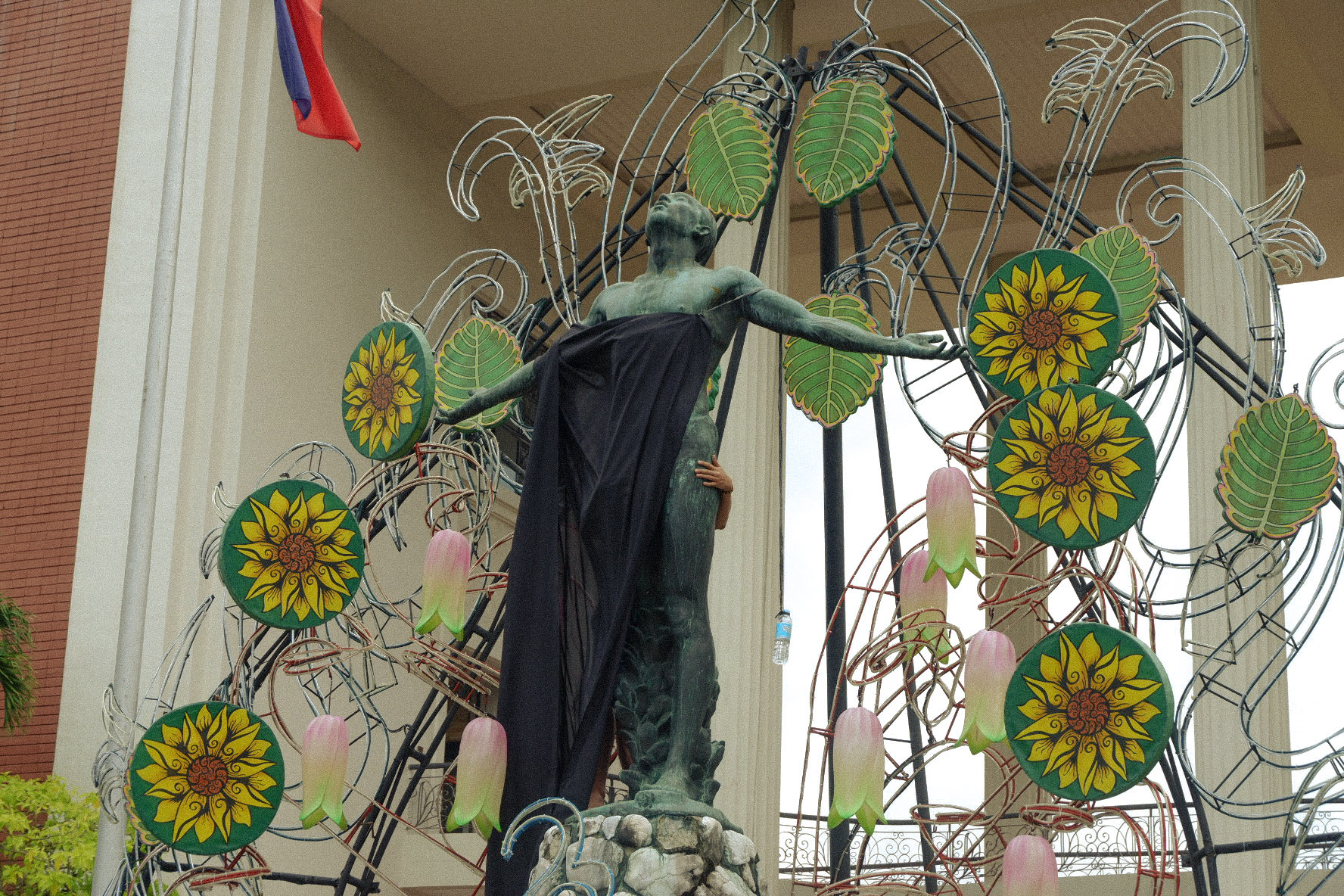While the UP administration has routinely assured temporary housing for those who will be affected by the establishment of the Philippine General Hospital (PGH) Diliman, the lack of a comprehensive plan on the residents’ permanent relocation and the hospital construction itself has raised doubt on whether the admin has any plans at all for the community.
The UP Diliman (UPD) Office of Community Relations (OCR), has conducted regular visits in the UP Arboretum since last year but is yet to address the concerns of the residents.
In its last visit on May 14, the OCR, along with some engineers and architects from the Project Management Office, intended to conduct an ocular of the construction site, but failed to do so as residents and groups barred them from entering the area.
Magkaisa Pook Arboretum, a local community organization of the residents in the Arboretum, along with members of Save Arboretum Network, an alliance of individuals and various organizations, prevented the OCR from entering the site. They demanded that concrete plans and transparency regarding the PGH Diliman project be presented to them first before any ocular inspection takes place.
“Wala sila (OCR) kasing maipakitang katunayan kung mayroon na bang plano ang UP ... doon sa mga dapat i-relocate. Kaya walang nagawang pag-uusap noon kasi yung engineer saka architect mismo ang nagsabi na wala pang plano ang UP,” Salvacion Tuboro, a resident and the leader of Magkaisa Pook Arboretum, told the Collegian.
The OCR only presented the construction of a staging area, or the temporary housing for the residents.
With the lack of assurance from the university, residents grapple with the fear of losing their homes, as well as their livelihoods, amid a pandemic.
“Nangangamba rin naman yung mga residente dito, kasi hindi naman tuloy-tuloy ang trabaho nila, pa-extra-extra, lalo dito sa amin mga [sa] construction [ang trabaho],” Tuboro said.
The OCR wrote in an email to the Collegian that the UP admin has not been able to formulate a detailed plan on the PGH Diliman construction due to the lack of information on the affected residents. The data, which will come from a census, are needed to assess the budget for the construction of the staging areas and the hospital itself.
However, Tuboro said that they will not agree to undergo the census and profiling until they have been assured that they will not be left hanging by the UP admin once the construction of the PGH Diliman begins.
Some locals, according to Tuboro, even fear that they might lose their homes if they participate in the census. This fear comes from the experience of residents who were originally from Brgy. Tatalon, Quezon City, and had their houses demolished in 2019 after consenting to a census. This forced them to go to the Arboretum to seek shelter. Now, they are once again facing the threat of having their homes torn down.
During the May 14 ocular in the Arboretum, the residents and the network crafted an agreement which the OCR has forwarded to the university. Only when the terms are signed will the residents agree to take part in the census and profiling.
“Hanggang walang plano ang UP sa mga residente or para sa konkretong paglilipatan … hindi kami pumapayag na ma-census,” said Tuboro.
As an assurance that the residents will not lose shelter, the agreement required that they shall not be evicted from the relocation area until an affordable and permanent resettlement site, with complete basic necessities like water and electricity, will be available for them.
“Hinihiling namin na ilagay [kami] sa tamang tirahan na permanente, hindi na yung staging area na pagdating ng ilang taon [ay] tanggal ulit,” said Tuboro.
The residents also urged the admin that the on-site relocation must be offered to all who will be affected by the demolition, after UP told the residents that only owners of land in the Arboretum will be relocated. Sharers, renters, and caretakers will not be provided with temporary housing, even when some of them have been living in the area for at least a decade.
“Hindi dapat maging usapin kung gaano na katagal ang isang tao sa isang lugar dahil nananatili naman ang kaniyang karapatan sa paninirahan at hindi naman ito dapat basta-basta lang itinatapon o dine-demolish,” Rachelle Villamor, co-convener of the Save Arboretum Network, told the Collegian.
Aside from the residents who could suffer from the threats of demolition, the UP admin also failed to recognize the effects of the hospital’s construction on the biodiversity in the Arboretum.
During the proposal of the referendum on the reclassification of 9.5 hectares of Pook Arboretum last year, the UP president and the Board of Regents did not raise any concerns on its biodiversity effects.
Instead of assessing the environmental impacts of the reclassification before making decisions, they approved the referendum hastily and “without due diligence,” according to Ramon Guillermo, then faculty regent.
Guillermo also questioned the purpose of the remaining 5.3 hectares of reclassified land when only 4.2 hectares will be allotted for the PGH Diliman, in an online forum last May 25. He added that he and the other faculty call on the BOR to reconsider their decision on this issue.
“Ang pinakahuling pagsisikap natin ay ma-reclassify back ang 5.3 hectares na iyon patungo sa protected forest area status dahil mayroong mga rare flora and fauna doon sa area na iyon,” Guillermo said.
The UP administration has not yet responded to the crafted agreement of the residents and groups which was forwarded by the OCR to the university last May 18, as of writing.
With the continued silence of the UP admin on this issue, the residents, together with community groups, continue to amplify their calls for a more transparent and comprehensive plan on the PGH Diliman construction.
“Kinikilala ng UP ang community kapag nariyan ang kolektibong pagtutol sa kaniya. Kung ipagpatuloy lang ng community ang kaniyang mahigpit na pagkakaisa at paninindigan laban sa proyekto ay posible na malabanan o maitulak na maging bahagi ang community sa pagbuo ng plano,” said Villamor.
She also noted that they are not against the PGH Diliman project because of its significant contribution to the improvement of the country's healthcare system, but only hope that it will not be at the expense of the UP communities.
“Dapat hindi tingnan na sagka ang komunidad sa kaunlaran. Dapat kasama sila sa pagpaplano para matiyak na hindi lang karapatan ng iilan ang maibigay. Hindi dapat [ito] pinagbabangga nang sa gayon ay magpatuloy ang [pag-iral ng] community,” Villamor added. ●







